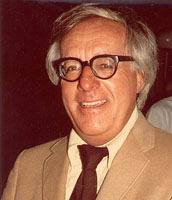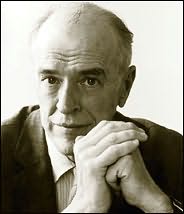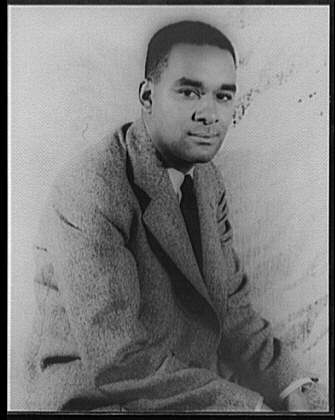
Lynda K. Hull
Born: 1954 in Newark, New Jersey
Died: 1994 in Plymouth, MA Pen Name: None Connection to Illinois: Lynda K. Hull taught English at DePaul University. Her longest permanent residency was in Chicago, where she was living when she wrote many of her last poems. Biography: Influenced heavily by Hart Crane as well as jazz musicians, Hull wrote poems charged with lyric exuberance and haunted by ecstatic references to drugs and material decadence. Hull was the recipient of fellowships from the National Endowment for the Arts and the Illinois Arts Council; she also received four Pushcart Prizes. She taught English at Indiana University, De Paul University, and in the MFA writing program at Vermont College. She also served as a Poetry Editor for the journal ''Crazyhorse''.Hull died of injuries sustained in a car crash in 1994.
Awards:
- Carl Sandburg Award from the Friends of the Chicago Public Library in 1991 and the Edwin Ford Piper Award in 1990 for ''Star Ledger'' Juniper Prize in 1986 for ''Ghost Money''
Lynda K. Hull on WorldCat : http://www.worldcat.org/search?q=lynda+k.+hull
Selected Titles
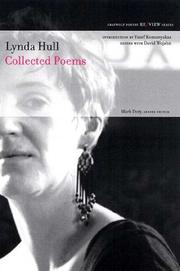 |
Collected poems / ISBN: 1555974570 OCLC: 76701699 Graywolf Press, Saint Paul, Minn. : ©2006. Brings together Hull's three collections--long unavailable--with a new introduction by Yusef Komunyakaa, and allows, for the first time, the full scale of her achievement to be seen. Edited with Hull's husband, David Wojahn, this book contains all the poems Hull published in her lifetime, before her untimely death in 1994. "If each // of us contains, within, humankind's totality, each possibility // then I have been so fractured, so multiple & dazzling ... "from "The Window." |
 |
Ghost money / ISBN: 087023546X OCLC: 13667084 University of Massachusetts Press, Amherst : 1986. |
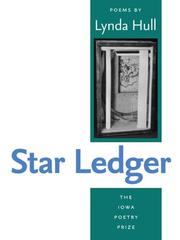 |
Star ledger : ISBN: 0877453195 OCLC: 646887517 University of Iowa Press, Iowa City : 1991. N this dark but finally redemptive group of poems, the tawdry and the exquisite must coexist: Star Ledger may evoke images of the celestial, but it is also the name of the Newark morning newspaper. Such ironies continually inform Hull's poetry, which is tough and uncompromising but richly veined with a musicality and a lyrical texture that recall earlier epics of the American city such as The Bridge and Paterson. |
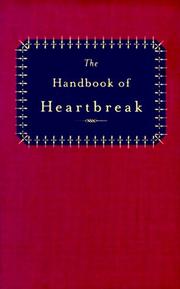 |
The handbook of heartbreak : ISBN: 068816286X OCLC: 39347525 Rob Weisbach Books, New York : 1998. Collected by U.S. Poet Laureate Robert Pinsky, this unique volume brings together works from poets jilted in the sixteenth century to those struggling with heartache today -- including William Shakespeare, Sylvia Plath, Wallace Stevens, Frank O'Hara, Langston Hughes, Emily Dickinson, and Louise Gluck. The Handbook of Heartbreak is a must for anyone who has ever loved -- and lost. |
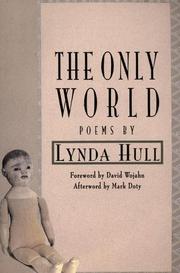 |
The only world : ISBN: 0060553634 OCLC: 32347634 HarperPerennial, New York, NY : ©1995. Lynda Hull's The Only World is the third and most ambitious collection by a poet who is one of the most dynamic and highly regarded figures of her generation. Completed shortly before her death, The Only World displays the dazzling lyric richness and unflinching examination of harrowing subject matter that were the hallmarks of Lynda Hull's poetry, and that in her final collection are explored in their most sustained and compelling fashion. In contrast to the safe domesticity of so much contemporary poetry, the poems of The Only World are decidedly unsafe; they confront some of the most pressing social and historical issues of our time - the Holocaust, the AIDS epidemic, and the violence of American cities - and they do so with a ferocity matched only by Hull's impeccable craftsmanship and deep compassion for the social outcasts who are so often her poem's protagonists. These are poems in which the personal and the autobiographical invariably fuse with the larger sorts of apocalypse our culture faces as it nears the millennium. Hull's muse is not the scrawny, self-absorbed figure that seems to inspire so many of today's poets, but Clio, whom Hull invokes as "the cruellest Muse, blank History, her pages/waiting to fill." Yet Hull's poems never engage these relentless and tragic forces by acceding to resignation or despair. Their most remarkable features are a hard-won compassion and a deep-felt generosity of spirit. Hers are poems that remind us again that redemption may indeed be possible; they ask us, in the words of her book's final poem, to "seek/that thing which shines & doth so much torment us." |


